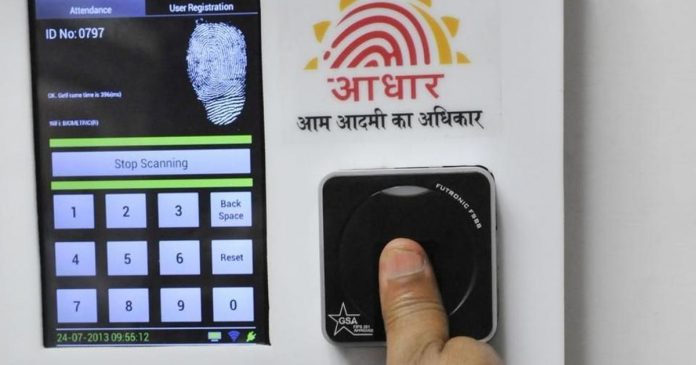A balance needs to be struck between the right to privacy of citizens and the state interest the Supreme Court stated while hearing a plea involving Aadhaar’s constitutional validity.
The apex court stated that the biggest issue with respect to Aadhaar is ensuring that the data collected by the Unique Identification Authority of India is not misused or leaked. It also stated the data cannot be used to track people’s activities that are considered private but can be used to serve national interest.
Opponents of the scheme have contended that Aadhaar linkage can result in Indians facing a ‘Nazi regime and police raj’ with the government tracking the movements of people. They have demanded that the rights of citizens be protected against pervasive surveillance and violation of “informational privacy”.
Data Cannot Be Used For Surveillance
A Constitution bench comprising Chief Justice Dipak Misra and Justices A K Sikri, A M Khanwilkar, D Y Chandrachud and Ashok Bhushan called for a balance between the two interests given the need for protecting the country against issues like terrorism and money laundering and the need for government to spend crores on social welfare measures.
The bench also confirmed that like private companies government authorities also cannot use Aadhaar data for surveillance or tracking the movements of citizens since the Centre is bound by the Constitution.
Appearing for social activists, senior advocate Shyam Divan, called the Adhaar Act “ illegal and unconstitutional” adding that the project provided “an architecture for surveillance” and would lead to “an Orwellian state” where the government will be able to track citizens constantly.
Aadhaar Violating Citizens’ Privacy
The lawyer stated that the Aadhaar Act fails to offer any added protection while violating the right to privacy by asking individuals to “part with demographic as well as biometric information to private enrolling agencies”.
He said that allowing private entities to use the Aadhaar authentication platform was the breach of the citizen’s right to informational privacy. This violation was also occurring in the case of the mandatory authorization for availing of a subsidy.
The bench however inquired of the advocate why people would not want to share information under the Adhaar Act when they share information freely with private companies like Google which tracks preferences and choices.
Divan responded stating that it is the government’s duty to protect citizens and enact legislation against private firms for violating fundamental rights.





